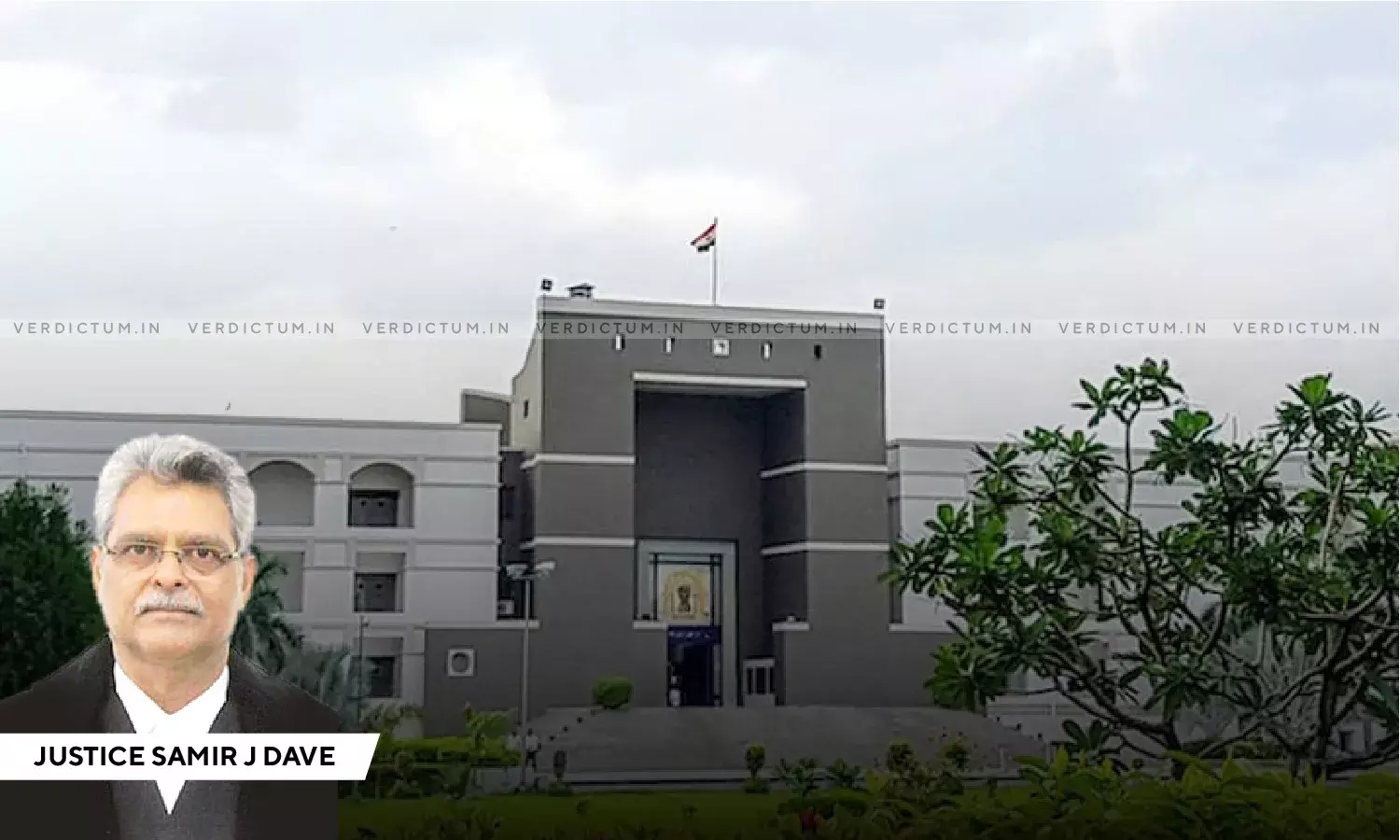Personal Liberty Of Individual Cannot Be Curtailed Upon Apprehension That He Might Tamper With Evidence: Gujarat HC

The Gujarat High Court in an application filed under Section 439 of the CrPC seeking regular bail has recently held that the personal liberty of an individual cannot be curtailed upon an apprehension that he will tamper with the evidence.
A Single Bench of Justice Samir J. Dave said –
"From the earliest times, it was appreciated that detention in custody pending completion of trial could be a cause of great hardship. From time to time, necessity demands that some unconvicted persons should be held in custody pending trial to secure their attendance at the trial but in such cases, "necessity" is the operative test. In this country, it would be quite contrary to the concept of personal liberty enshrined in the Constitution that any person should be punished in respect of any matter, upon which, he has not been convicted or that in any circumstances, he should be deprived of his liberty upon only the belief that he will tamper with the witnesses if left at liberty, save in the most extraordinary circumstances."
The Bench also noted that the applicant has played an important role in the commission of the alleged offence and that there is a possibility that if he is released on regular bail, he will not be present before Court during the trial.
Advocate Kishan R Chakwawala appeared on behalf of the applicant while Advocate J.K. Shah appeared for the respondent i.e., the State.
Advocate Sanjay Prajapati represented the complainant.
Brief Facts of the Case –
The applicant i.e., the accused has been booked under the offences punishable under Sections 302, 307, 506(2), and 114 of the Indian Penal Code and under Section 135 of the Gujarat Police Act. The matter was related to the payment of the settlement. The original informant was threatened with getting killed if he did not pay the amount. The accused persons had assaulted the brother of the complainant and therefore, the FIR was filed regarding the present issue.
The counsel for the applicant submitted that the applicant is innocent and has been falsely implicated in the alleged offence. Opposing the bail application, the counsel for the State contended that there is sufficient evidence against the applicant to prove his involvement in the alleged offence.
The counsel for the complainant submitted that the parties to the conflict have decided to let go and forego as the applicant and complainant have thereby amicably solved and settled the issue at hand with due diligence and therefore, the issue is settled amicably and mutually in the interest of both the parties.
The High Court after hearing the contentions of the parties involved in the present case observed, "At this stage, it is important to note here that looking to the affidavit filed by the original complainant, it appears that the complainant has stated on oath that the matter is amicably settled between the parties and if the applicant is released on bail he has no objection. Such a practice is unwarranted and it amounts to hampering/ tempering with the evidence or witnesses, when such a serious offence of murder is committed. Hence, this Court is of the opinion that such an affidavit on oath filed by the original complainant cannot be considered, looking to the gravity and severity of the offence committed by the accused person."
The Court further held that the prosecution has clearly established the prima facie case against the present applicant and thus, the Court is not inclined to exercise the powers vested under Section 439 of Cr.PC. for releasing the present applicant on bail.
Accordingly, the Court rejected the application.
Cause Title - Naransinh Amarsinh Bihola v. State Of Gujarat
Click here to read/download the Judgment


